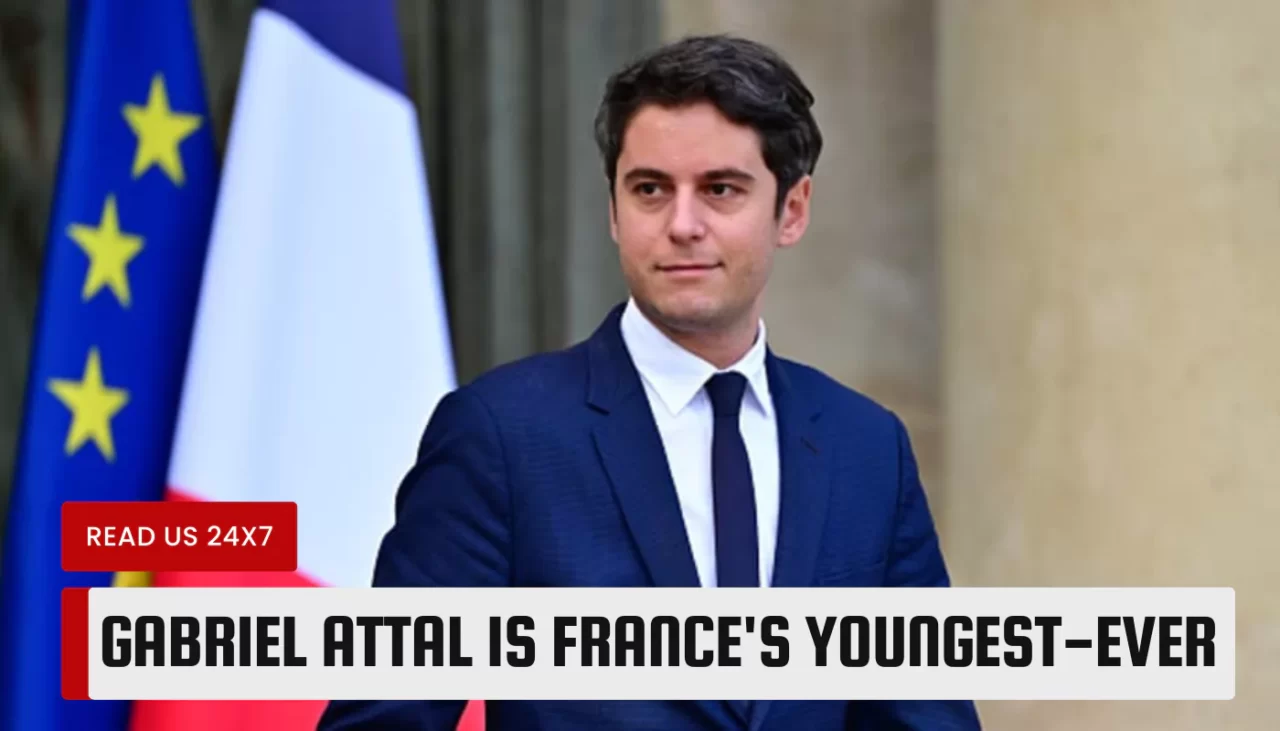France has a new prime minister: Gabriel Attal, a 33-year-old former spokesman for President Emmanuel Macron. He is the youngest person ever to hold the position in France, and the first openly gay one. His appointment is seen as a sign of Macron’s desire to inject new energy and dynamism into his government, ahead of the 2024 presidential election. But what are the challenges and opportunities that Attal faces as he takes on this crucial role?
Background on Gabriel Attal
Attal was born in 1990 in Clamart, a suburb of Paris. He studied law and political science at Sciences Po, a prestigious university in France. He joined the Socialist Party in 2006, and worked as an adviser to several ministers under former President François Hollande. He also served as a local councillor in Vanves, a town near Paris.
In 2017, he left the Socialist Party and joined Macron’s new movement, En Marche!, which aimed to transcend the traditional left-right divide in French politics. He was elected to the National Assembly, the lower house of parliament, as one of the youngest MPs in France. He quickly rose through the ranks of Macron’s party, becoming its deputy general secretary in 2018, and its spokesman in 2019.
He also held a number of roles in Macron’s government, such as secretary of state for youth and civic engagement, and government spokesman. He was in charge of communicating the government’s policies and actions to the public, especially during the COVID-19 pandemic. He gained a reputation for being loyal, articulate, and charismatic.
Attal’s Promises and Challenges
As the new prime minister, Attal has vowed to continue Macron’s reform agenda, which aims to modernize France’s economy and society, and make it more competitive and inclusive. He said he would focus on reviving Macron’s popularity, which has been damaged by the health crisis, social unrest, and security threats.
One of his main tasks will be to implement the controversial plan to raise the retirement age from 62 to 64, which was enacted into law in December 2023. The plan sparked massive protests and strikes from unions and opposition parties, who argued that it would hurt workers’ rights and pensions. Attal will have to convince the public that the reform is necessary and fair, and that it will ensure the sustainability of the pension system.
Another challenge for Attal will be to prepare Paris for hosting the 2024 Summer Olympics, which is expected to boost the country’s economy and tourism, but also pose logistical and security issues. Attal will have to oversee the construction of new venues and infrastructure, and coordinate with the local authorities and the International Olympic Committee. He will also have to ensure that the event is environmentally friendly and socially inclusive.
Impact on French Politics
Attal’s appointment as prime minister is also a strategic move by Macron, who is facing a tough re-election campaign in 2024. Macron hopes that Attal will appeal to younger and more progressive voters, who may be disillusioned with the traditional parties and tempted by the far right or the far left. Attal is seen as a symbol of confidence in young people by Macron, who said he wanted to “give them more responsibility and more power”.
However, Attal’s rise to power also comes at a time when Macron’s party, La République En Marche!, has lost its majority in parliament, after several defections and by-election defeats. The party now has to rely on the support of smaller allies, such as the centrist MoDem and the environmentalist EELV. This could limit Attal’s ability to pass legislation and implement reforms, and increase the risk of political deadlock.
Moreover, Attal will have to face a strong opposition from the far right, led by Marine Le Pen, who is Macron’s main rival for the presidency. Le Pen has criticized Attal’s appointment as a “provocation” and a “sign of weakness” by Macron, who she accused of being “out of touch” with the reality and the aspirations of the French people. She has also denounced Attal’s support for immigration, multiculturalism, and LGBT rights, which she claims are undermining France’s identity and sovereignty.
Conclusion
Gabriel Attal is France’s youngest-ever and first openly gay prime minister, who represents a new generation of politicians and a new vision for France. He has pledged to pursue Macron’s reform agenda, and to tackle the challenges of the post-pandemic recovery, the pension reform, and the 2024 Olympics. He also hopes to win over the young and progressive voters, who are key for Macron’s re-election bid. However, he will have to deal with a fragile parliamentary majority, a hostile opposition, and a polarized electorate, which could make his job difficult and uncertain.


